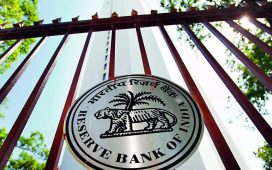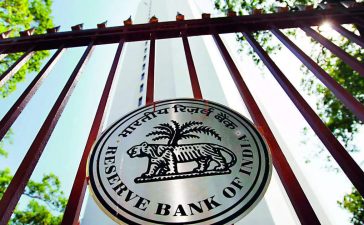The latest jobs market research suggests uncertainty over Britain’s economic outlook and rising costs are continuing to hit recruitment.
KPMG and Recruitment and Employment Confederation (REC)’s findings released on Wednesday (October 11) show permanent positions fell again in September with companies reluctant to commit to such hires. The rate of decline was, however, the weakest it has been in three months.
Pay pressures continued to weaken last month with rates of starting salary inflation and temp wage growth edging down to 30- and 31-month lows respectively, according to the UK Report on Jobs survey, which was compiled by S&P Global.
Jack Kennedy, Senior Economist at Indeed, told Express.co.uk the latest figures will bring some relief to Threadneedle Street.
He said: “The Bank of England are likely to take some comfort from the latest survey findings, as they suggest wage pressures may be set to cool while recruitment activity was stabilising in September.
“Rate-setters recently pointed to a fallback in growth of starting salaries as a possible leading indicator that official measures of wage growth are set to ease from currently elevated levels.”
Mr Kennedy said that wage growth is a key indicator the Bank of England watches, adding: “A sustained easing would suggest inflationary pressures becoming easier to contain and hence less compulsion to keep interest rates higher for longer.
“Meanwhile, hiring has cooled substantially from post-pandemic highs over the past year, but the labour market certainly isn’t crashing and indeed for some sectors skill shortages remain the biggest concern.”
BoE Governor Andrew Bailey has long called for wage restraint, warning generous pay rises would only add fuel to the UK’s inflation fire.
Britain’s central bank has raised its base interest rate to 5.25 percent in a bid to bring stubborn price rises down, with its next announcement due on November 2.
The KPMG/REC study of 400 recruitment firms has also shown improved demand for short-term staff and an increased availability of workers to fill vacancies.
But total vacancies slipped into contraction territory in September, marking the first drop in overall demand for staff since February 2021, although the rate of contraction was only marginal, according to the survey.
Claire Warnes from KPMG UK said: “A concerning feature of this month’s data is that demand for staff is losing momentum, with total vacancies falling for the first time since February 2021 amid a fresh reduction in permanent vacancies.
“While both reductions are slight, employers are clearly nervous due to the long-term economic uncertainty and budget constraints that are impacting businesses everywhere.
“This in turn is leading to a continued reliance on temporary staff.”
Ms Warnes said skill shortages across a range of sectors, from permanent IT staff to temporary nursing roles, also continue to be an area of long-term concern for the economy.
She said: “The labour market is starting to look slightly precarious again and recruiters will be wondering and hoping that the recent slight calming of inflation rates positively impacts the outlook for both employers and jobseekers.”
Neil Carberry, REC Chief Executive, said: “Employers tell us they are feeling better about themselves as the year moves on, and today’s data does suggest the possibility of a turnaround in hiring over the next few months.
“Permanent placements have been falling for a year now from abnormal post-pandemic highs. While permanent hiring activity continues to slow, fewer firms reported a slowdown last month, leading to a much shallower rate of decline than most months recently.
“Likewise, temporary hiring remains robust with billings growing marginally in September – as they have most months this year.”











